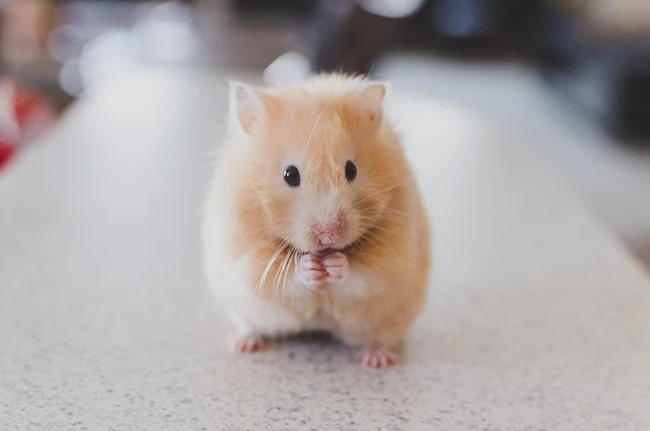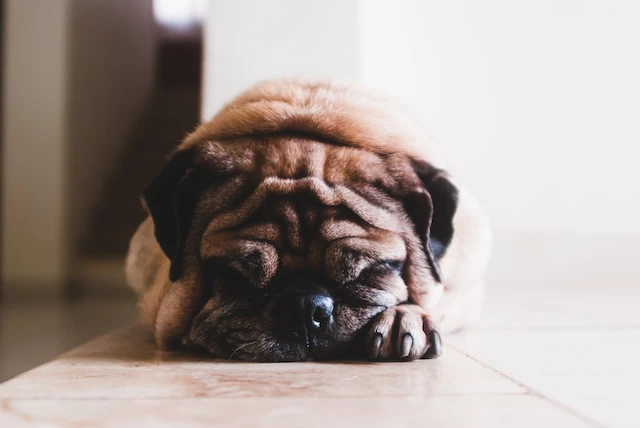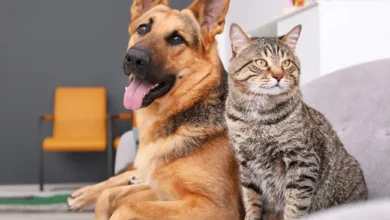
Taking care of small pets requires more than just good old-fashioned love and attention; their diet is one of the most important factors in maintaining their health and quality of life. But with all the options available today, from store-bought to fresh foods, what dietary choices will help keep our beloved fur balls active and feeling great?
Our team has done extensive research to answer this exact question: What’s the right diet for healthy small pets? In this blog post, we uncover how to make sure your pet is getting all the nutrients needed to live a long and happy life!
Understand the Nutritional Needs of Small Pets
Small pets, such as hamsters, guinea pigs, and rabbits, are cherished members of many families. It’s important to remember that these furry friends have specific nutritional needs to keep them healthy and happy. A balanced diet for small pets should include hay, fresh vegetables, and a small amount of commercial food.
The hay should be available at all times, as it helps with digestion and wears down their teeth. Fresh vegetables provide essential vitamins and minerals, but it’s important to research what is safe for your specific pet. For example, putting corn in your hamster’s diet can be beneficial, but if your hamster is diabetic, then you should avoid it. Plus, some vegetables are toxic to rabbits and guinea pigs.
Finally, commercial food should only make up a small portion of their diet, as it can be high in sugar and lacking in nutrients. By understanding the nutritional needs of your small pet, you can ensure they live a long and happy life as part of your family.
Choose the Right Food for Your Pet
Our pets are an essential part of our lives, and we always want to give them the best care possible. One of the most crucial aspects of pet care is feeding them appropriately. Choosing the right food for your pet can be confusing, with so many options available in the market.
It is essential to consider your pet’s breed, size, activity level, and any allergies they might have when deciding on their diet. Consulting with a veterinarian can also help identify any specific nutritional needs your pet may have. Remember, feeding your furry friend a balanced and nutritious diet can lead to a healthy and happy life for them.
Consider Supplements to Enhance Nutrition
In addition to the right diet for your pet, you may want to consider supplementing their nutrition. Depending on your pet’s breed and activity level, they may need extra vitamins or minerals. For example, vitamin C is essential for guinea pigs as they cannot produce it themselves. Adding a daily Vitamin C supplement can make sure that their needs are met.
Supplements should be added to their diet in moderation, as it can lead to an unbalanced diet. You can check with your veterinarian to determine which ones would benefit your pet the most.
Prepare a Balanced Meal for your Pet
As pet owners, we want to ensure that our furry friends are getting the best nutrition possible. Just like humans, a balanced diet is key to their overall health and well-being. When preparing a meal for your pet, it’s important to keep in mind their specific dietary needs.
Your veterinarian can provide guidance on what is best for your pet’s breed, age, and any health conditions they may have. Including a variety of proteins, vegetables, and whole grains can ensure that your pet is getting all the necessary nutrients. Don’t forget to also account for portion sizes and limit treats to maintain a healthy weight. With a little extra effort, you can provide your pet with a nutritious and delicious meal.
Monitor Your Pet’s Weight and Health
As pet owners, we all want our furry companions to live long, happy lives. One crucial aspect of their well-being is monitoring their weight and overall health. Regular vet visits are an essential part of achieving this goal. During these visits, your veterinarian can assess your pet’s weight, body condition, and overall health.
They can also provide recommendations for a healthy diet and exercise plan tailored to your pet’s specific needs. By staying on top of your pet’s health, you can potentially prevent future health issues and ensure that your pet is living their best life. So don’t forget to schedule those regular vet visits and give your pet the best chance at a long and healthy life!
Get Creative with Variety
Just like humans, small pets will get bored of the same food every day. That’s why it’s important to offer your pet variety in their diet. There are lots of creative ways you can do this while still providing a balanced meal. For example, you can switch up the vegetables they eat each day, or mix fresh foods with store-bought to create a unique meal.
You can also offer treats in moderation, such as small pieces of fruit or cooked eggs. Remember to always research what is safe for your specific pet and never feed them anything that is toxic. By getting creative with their diet, you can keep your pet happy and entertained while still making sure they get all the nutrients they need!
Keep in mind that it’s also important to monitor the portion sizes you feed your pet. Stick with small, bite-sized pieces and avoid overfilling their bowl. You can also speak with your veterinarian to determine what amount is appropriate for your pet’s size and activity level.

Taking all of this into consideration, remember to always consult a vet before starting to make any changes in your pet’s diet. It is also important to monitor their progress with regular trips to the veterinarian. Finally, it is important to get into the habit of feeding them nutritious meals and offering small healthy treats as variety for small pets is key for general health and happiness.
Ultimately, we are responsible for providing our small pets with a balanced and healthy diet in order for them to enjoy an optimal quality of life. Whether that comes from a prepared store brand or a home-cooked meal–with careful preparation and balance–we can give our fluffy friends the best chance at a happy life.



